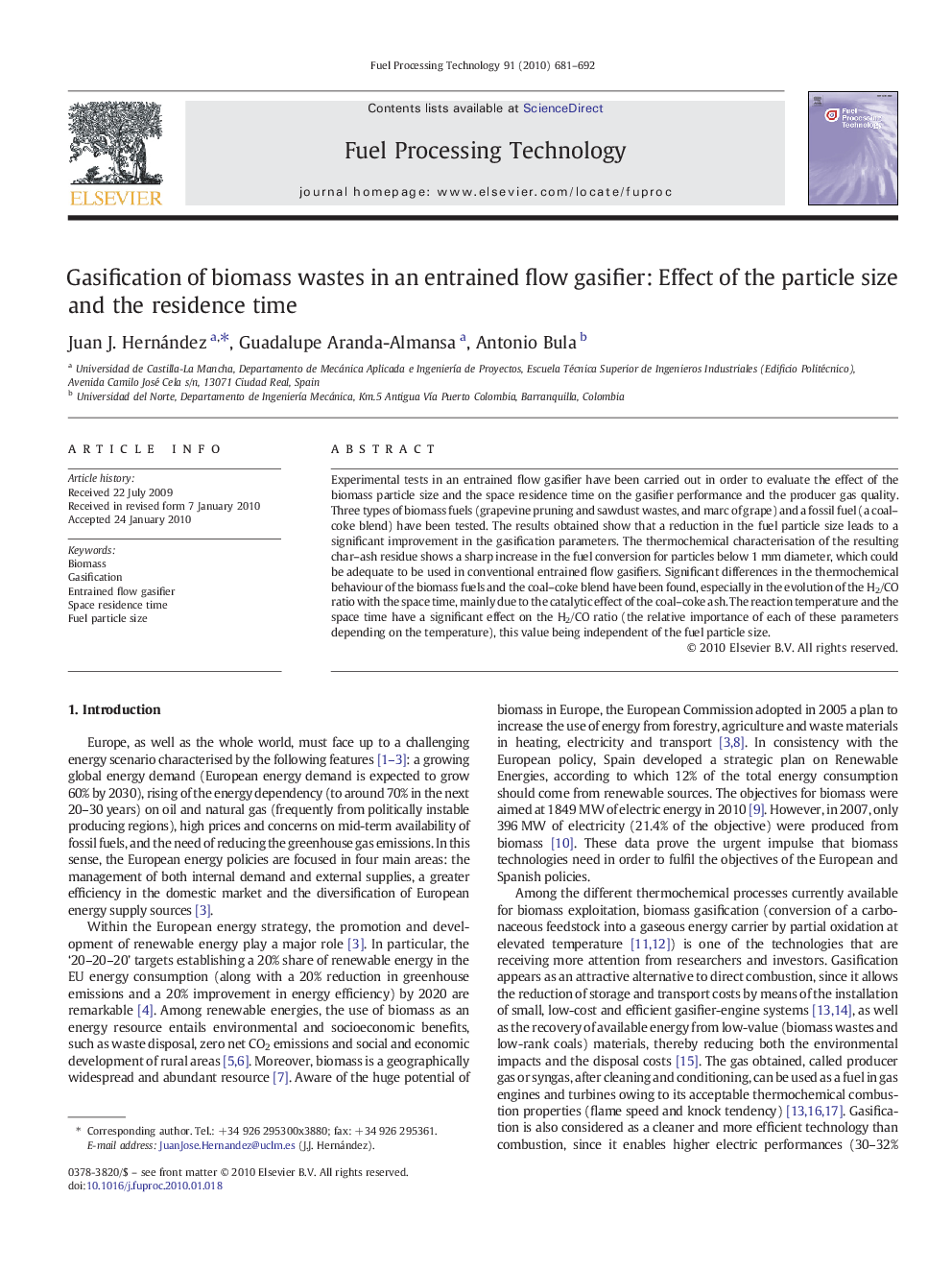| Article ID | Journal | Published Year | Pages | File Type |
|---|---|---|---|---|
| 210773 | Fuel Processing Technology | 2010 | 12 Pages |
Experimental tests in an entrained flow gasifier have been carried out in order to evaluate the effect of the biomass particle size and the space residence time on the gasifier performance and the producer gas quality. Three types of biomass fuels (grapevine pruning and sawdust wastes, and marc of grape) and a fossil fuel (a coal–coke blend) have been tested. The results obtained show that a reduction in the fuel particle size leads to a significant improvement in the gasification parameters. The thermochemical characterisation of the resulting char–ash residue shows a sharp increase in the fuel conversion for particles below 1 mm diameter, which could be adequate to be used in conventional entrained flow gasifiers. Significant differences in the thermochemical behaviour of the biomass fuels and the coal–coke blend have been found, especially in the evolution of the H2/CO ratio with the space time, mainly due to the catalytic effect of the coal–coke ash. The reaction temperature and the space time have a significant effect on the H2/CO ratio (the relative importance of each of these parameters depending on the temperature), this value being independent of the fuel particle size.
